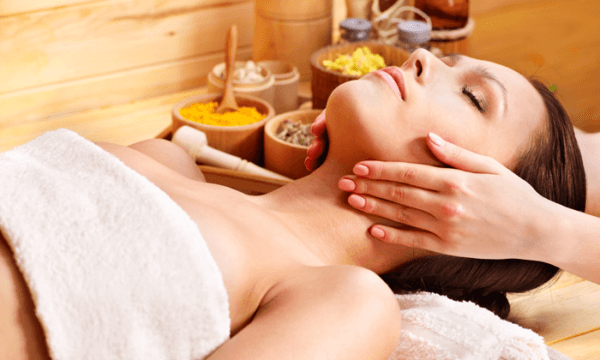Ayurveda proposes that the third and final vata stage of life lasts from mid-life until death. This period of our lives is considered a vata time precisely because it involves a natural physiological increase in the very qualities that tend to provoke vata.
In this stage, we are gifted with wisdom and are drawn to teaching others. We are expanding our spiritual connection and are more fascinated by the magic of life. At the same time, we become less resilient and are more prone to constipation, insomnia, muscle aches, and cracking or pain in the bones and joints.
If you haven’t taken care of yourself during the earlier stages of life, it’s a good time to pay particular attention now as the body is less able to bounce back and rejuvenate.
Too much vata also impacts the ability to relax, sleep or just shut down and there will be loss of mental focus and ability.
Here are a few concrete tips to maintain balance at this particular stage of life.

Abhyanga Massage
Abhyanga is the process of applying and massaging warm oil into the skin. It is a very soothing and nourishing practice, that is especially helpful for finding balance during the vata years. Oil massages not only feel good; they also relax the body and mind, improve circulation, and support the nervous system. Plain sesame oil is great for this.

Nasya
Nasya is the practice of applying a medicated Nasya Oil to the nasal passages. It is particularly calming to vata because it lubricates and soothes these delicate respiratory tissues while easing constriction, relieving accumulated stress, supporting mental clarity, improving the quality of the voice, and strengthening vision.

Pranayama and Meditation
During the vata stage of life, quieting the mind and nervous system becomes ever more important. If you do not have an established practice, So Hum Meditation and Nadi Shodhana Pranayama are especially vata-pacifying.

Moderate Exercise
Keep moving but don’t overdo it. The body is getting more fragile. Injuries are more frequent, and healing takes longer. Excessive exercise can actually lead to more depletion.

Focus on Warm Foods
Foods that are cooked, warm, and moist are grounding and more readily digested than raw and cold foods. Often times, one’s digestion becomes more delicate with age, so it is important to find foods that can be digested easily. It is also important that foods are not too heavy, and moderate spicing can help boost one’s agni (digestive fire) Vegetable-based soups, stews, roasted vegetables, and porridges with spices such as cumin (Cuminum cyminum), ginger (Zingiber officinale), black pepper (Piper nigrum), turmeric, and coriander (Coriandrum sativum) are good choices for vata pacification.
We hope that a better understanding of this stage of life will enable you to adapt your routines in ways that are truly supportive and instructive.
For appointments or more information, please contact us via WhatsApp at 407.617.9016.
We will be happy to assist you



